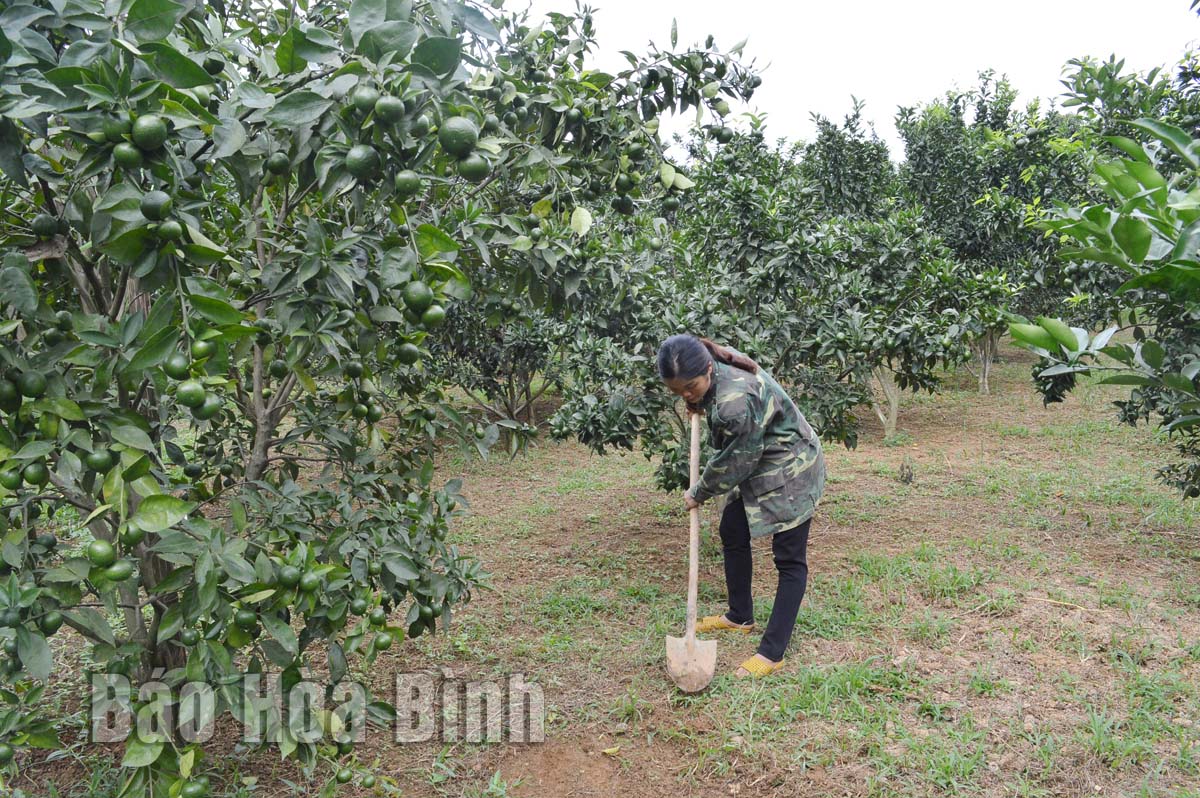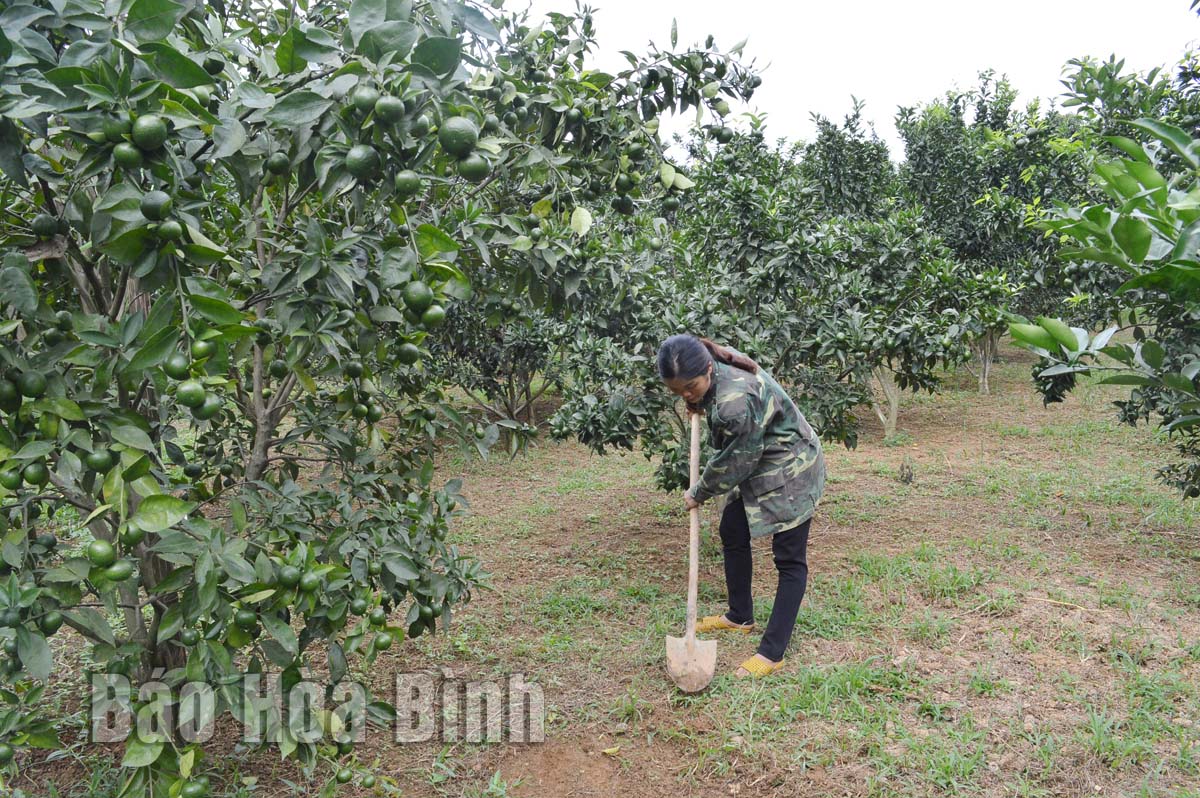
(HBO) – Hoa Binh has taken various measures to implement the Government's Decree No. 109/2018/ND-CP regarding the expansion of organic agriculture, including the formation of a taskforce for organic agriculture development and the issuance of a document guiding the building of a project on boosting organic agriculture and a decision approving a plan to develop organic agriculture to 2025 with a vision to 2030.

Kim Boi currently has about 640 hectares of
organic farms. Photo: Farmers in Tu Son commune take care of their fruit farm.
Currently, Hoa Binh has nine agricultural
facilities certified to meet Vietnam’s organic standards, including those in
cultivation and breeding.
Organic farm produce of Hoa Binh has seen good
sales, mostly in Hanoi, through contracts with distributors.
So far, the province has defined major products
to develop value chains. For example, it boasts 10,700 hectares of citrus
trees, including 7,400 hectares of commercial area with total output of 150,000
tonnes, 12,878 hectares of vegetables with productivity of 5.43 tonnes per
hectare, sugar cane with 5,342 hectares, and herbal plants with 1,689
hectares.
In order to realise the plan to to develop
organic agriculture to 2025 with a vision to 2030, Hoa Binh has planned organic
agricultural areas in seven out of 10 districts and city, with 3,197 hectares
recommended for organic farming. Products subjected to organic farming include
citrus fruits, vegetables, banana, sugar, dragon fruit and herbal plants. The
area for organic farming meeting the Vietnamese and PGS standards has risen
from 9.8 hectares in 2018 to 66.3 hectares currently.
Although Hoa Binh has high potential in
developing its organic agriculture thanks to favourable climate and soil
conditions, the province’s organic farming areas have remained modest with
small-scale farms.
In the time to come, Hoa Binh will focus on
supporting local farmers to invest in agriculture, especially organic
agriculture, while attracting investment in the field, issuing local standards
for local farms, expanding farming areas meeting current organic standards, and
strengthening trade promotion for better sales of its products./.
According to data from the Hoa Binh Provincial Party Committee, the industrial production index for the first six months of 2025 is estimated to have increased by 20% compared to the same period last year. This marks the highest year-on-year growth rate for this period since 2020.
In the first six months of 2025, Hoa Binh province’s export turnover was estimated at 1.145 billion USD, marking an 18.11% increase compared to the same period in 2024. Import turnover was estimated at $ 804 million, a 17.15% increase, which helped the province maintain a positive trade balance.
The lives of the ethnic minority farmers in Tan Lac district have gradually improved thanks to the new directions in agricultural production. This is a testament to the collective strength fostered through the professional associations and groups implemented by various levels of the district’s Farmers’ Union.
With the motto the "product quality comes first,” after nearly one year of establishment and operation, Muong village’s Clean Food Agricultural and Commercial Cooperative, located in Cau Hamlet, Hung Son Commune (Kim Boi district), has launched reputable, high-quality agricultural products to the market that are well-received by consumers. The products such as Muong village’s pork sausage, salt-cured chicken, and salt-cured pork hocks have gradually carved out a place in the market and they are on the path to obtaining the OCOP certification.
In the past, the phrase "bumper harvest, rock-bottom prices" was a familiar refrain for Vietnamese farmers engaged in fragmented, small-scale agriculture. But today, a new spirit is emerging across rural areas of Hoa Binh province - one of collaboration, organisation, and collective economic models that provide a stable foundation for production.
Maintaining growing area codes and packing facility codes in accordance with regulations is a mandatory requirement for agricultural products to be eligible for export. Recently, the Department of Agriculture and Environment of Hoa Binh province has intensified technical supervision of designated farming areas and packing facilities to safeguard the "green passport" that enables its products to access international markets.



